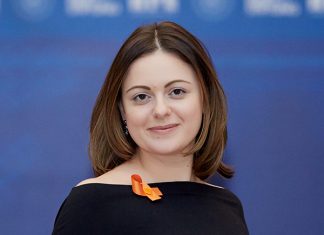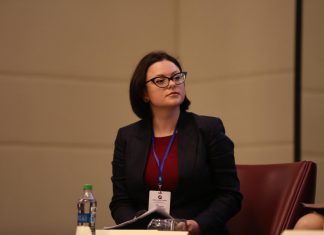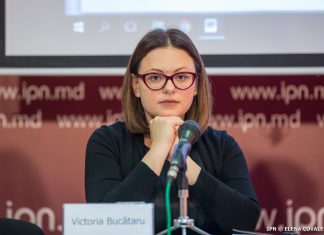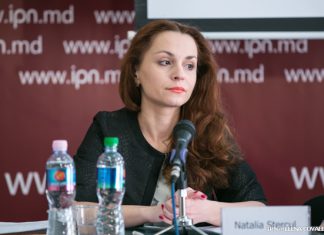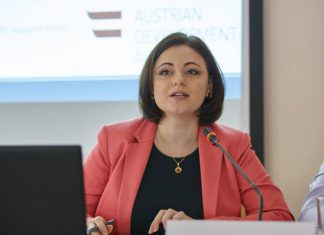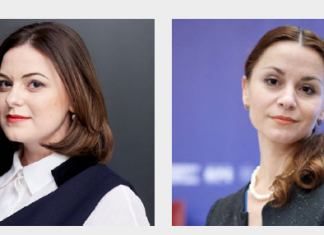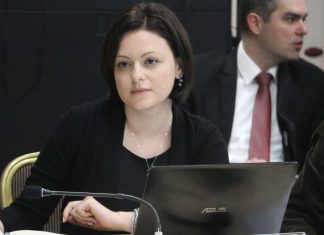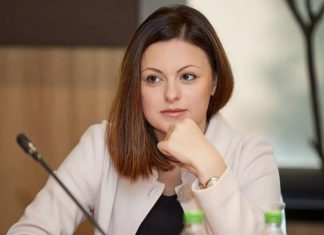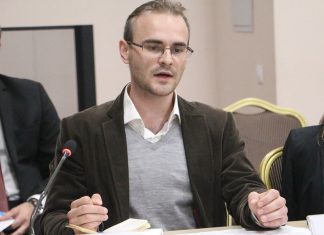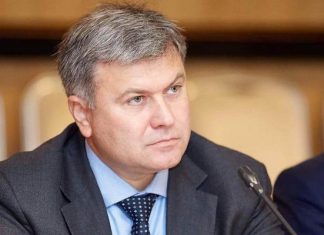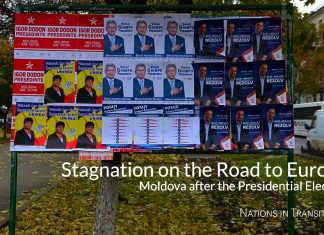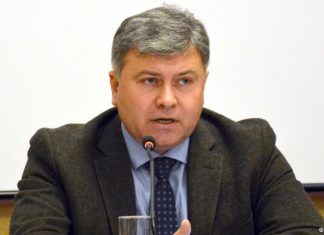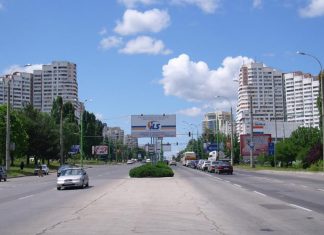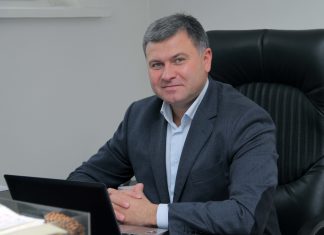Laura Zghibarta: The Fourth Estate in the Making: Regulation and Reform of Media in...
In recent years, Moldova’s media sector has been defined by a range of negative characteristics, including monopolization of the media market by those in power, information manipulation and intimidation of journalists, and attempts by...
Natalia Stercul: The Republic of Moldova in the context of the 2030 Eastern Partnership...
The Eastern Partnership as a regional dimension of the Eastern Neighborhood is one of the most successful initiatives that have brought positive dynamic transformations in a wider region. Moldova has essentially changed over the...
Victoria Roșa: Freedom of Expression and the Geopolitical Stalemate: Defending Digital Spaces in the...
Victoria Roșa, APE Senior Expert: In response to greater geopolitical threats in the Eurasia region, including hybrid
warfare, Moldova introduced the concept of information security to its national security
policy in 2017-2018. The Moldovan legal framework...
Editorial by Victoria Bucataru: Brexit: a term, a phenomenon, a process…
Victoria Bucataru, Executive director, Foreign Policy Association
For almost three years, the news about Brexit and its consequences have become a more
frequent and increasingly natural media presence. First, both the foreign and local media
talked about...
Editorial by Victoria Bucataru: From an uncertain zone to security generator: a long way...
Victoria Bucataru, Executive director, Foreign Policy Association
Security is a state and a necessity that concerns us all, whether we are talking about
the citizens and everything the security means for them - housing, health, future,...
Elections in time of the Hybrid War: the case of Moldova
Security challenges arising from hybrid threats are high on security agenda in the Republic of Moldova as well as regionally. In the period of electoral process, the hybrid context became more tangible. A Moldovan asymmetric approach to the Russian hybrid threats have created provocative conditions in which reducing the threats and eventually preventing it was impossible. Moldova will remain in a so called «gray» zone for a long time due to misunderstanding of Russia worldview and using Russian support in the double political game of the potential electoral participants. The internal political situation of the country depends on the results of coalition formation in the Parliament.
Ludmila Nofit, Program Coordinator within APE: The More Things Change, The More They Stay...
Moldova’s media face a major challenge in that they are subject to political influence, concentrated in the hands of a few oligarchs, and lack transparency in their ownership. Many hoped that this would change...
Editorial by Victoria Bucataru: The chain of abuses and… political weaknesses
Victoria Bucataru, Executive director, Foreign Policy Association
The year 2018, which is rapidly approaching its end, was marked by an unprecedented
degradation of the relationship between Chisinau and Brussels. The problems have
become more and they let...
Editorial by Victoria Bucataru and Natalia Stercul: Do we really want to give up...
Victoria Bucătaru, executive director, Foreign Policy Association
Natalia Stercul, programme director, Foreign Policy Association
The uncertainty, together with the desire to prevent more obvious major democratic skirmishes, dominated the messages of the diplomats and experts -...
Editorial by Victoria Bucataru: The more ways, the less Euro-integration
Victoria Bucătaru, Executive director, Foreign Policy Association
The East-West controversy in the public discourse of the political elites in Chisinau is finally taking new shape after years of wondering how to handle the geopolitical factor...
Editorial by Victoria Bucataru: Let’s get back to the (de facto) irreversibility of the...
Victoria Bucătaru, Executive director, Foreign Policy Association
The so-called twiter revolution from April 2009 and, together with it, the liberation of the spirit of democracy allowed for the Republic of Moldova to orient its...
Editorial by Victoria Bucataru: 27 years of Transition, 27 years of Uncertainty
Victoria Bucătaru, executive director, Foreign Policy Association
At its 27th anniversary of Independence that we are celebrating at this end of August, one of the most important questions for the Republic of Moldova remains...
Danu Marin: Cultivating Information Resilience in Moldova’s Media Sector
In democratic societies, media are considered the fourth branch of power because they provide free, objective information on important matters in politics, society, and local communities for the public. They are not only an...
Executive Director of FPA, Victoria Bucataru: Media Literacy and The Challenge of Fake News
Moldova, a country with a Soviet past and hopes of a European future, has by no means avoided the problem of fake news and disinformation. Given its geopolitical position, in the past few years...
Victor Chirila President, Foreign Policy Association of Moldova: Why Moldova fails?
Synopsis
According to the EU, the main challenges of Moldova are the excessive politicization of state institutions, systemic corruption, concentration of media ownership, lack of judiciary independence, the financial sector governance and insufficient investigation into...
Victoria Bucataru: Stagnation on the Road to Europe: Moldova after the Presidential Election
Moldova’s presidential elections in November 2016 resulted in a victory for pro-Russian candidate Igor Dodon. This brief discusses the consequences for the country’s foreign policy trajectory and domestic politics.
Extracthttp://www.ape.md/wp-content/uploads/2017/04/2016_NIT_Moldova_Elections_Brief_Final.pdf
Victor Chirila is Executive Director of the Foreign Policy Association: Moldova avoided a big...
Victor Chirila: Moldova avoided a big disaster at the 5+2 negotiations in Berlin, but only for now...
Moldova avoided a big disaster in Berlin. Despite increased and coordinated pressure, George Balan, the Deputy Prime Minister...
Victori Chirila, Executive Director APE: Transnistrian Settlement in Stalemate
On 29 November 2015, Transnistrian separatist region held its ordinary parliamentarian elections. The elections are considered unconstitutional by the Moldovan authorities and, therefore, are not recognized by the Republic of Moldova and the international...
The EU and Moldova: How to Liberate a Captured State
BUCHAREST— Local elections in Moldova this weekend have strengthened the position of the incumbent government, despite allegations of corruption on a massive scale. Earlier this year, around $1 billion — about 12 percent of...
Victor Chirila, Moldova și The Falling Star of the Eastern Partnership (EaP), APE/BST, 16.06.2015.
In the wake of the EaP Summit in Vilnius that took place on 28-29 November 2013, Moldova was considered the brightest star of the EaP. Its merits were evident. It initialed the Association Agreement (AA) including the Deep and Comprehensive Free Trade Aria (DCFTA) with the EU concluded successfully the visa liberalization dialogue with the EU and the European Commission recommended to the EU Council the lifting of visa requirements for Moldovan citizens who hold biometric passports. Five months later, on 28 April 2014, the EU has liberalized visa regime with Moldova, then, on 27 June 2014, Moldova signed the AA and started its provisional implementation on 1 September 2014. The prospects of Moldovas partnership with the EU were much more promising than ever before.




